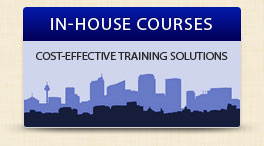 Failure Mode and Effects Analysis (FMEA)
Failure Mode and Effects Analysis (FMEA)
Overview
Failure Mode and Effects Analysis (FMEA) is a powerful technique that enables companies to improve customer satisfaction and reduce product liability risk by anticipating and preventing defects in design and manufacture.
FMEA techniques are applicable to all industry sectors, though companies supplying the automotive industry, or seeking compliance and registration to ISO/TS 16949, are required to use FMEA techniques to achieve product assurance.
When properly applied the FMEA process can be used to:
- Identify critical characteristics of sub-systems and components in a complex product or process
- Identify or eliminate the potential causes of failure during the product design process, thus speeding up the development process and reducing the number of late changes
- Develop an effective control plan that will reduce the risk of project or product failure due to late delivery and cost overruns
- Improve customer satisfaction and reduce warranty costs
Course Objectives
This interactive and practical course introduces the principles behind the FMEA techniques and explains how they can be applied at each stage of product and process development. It will provide delegates with a basic knowledge of the FMEA methodology, how to apply it to product and process design, and demonstrates how the results of the FMEA are used to define the requirements for:
- An effective product validation plan
- An effective control plan for the manufacturing process.
Key Skills / Learning Objectives
Through the combination of interactive tutorials and workshops, our course will enable the delegates to produce an FMEA and fit an FMEA into the overall design by:
- Identifying the requirements and expectations for the product or process
- Identifying and defining potential failure modes
- Developing an effective control plan that will reduce the risk of product failure
- Identifying and assessing the potential effects of failure on internal processes, supply chain partners and end users.
Throughout the course delegates will explore the relationships between the system, design and process FMEA’s and discover how they can apply them to improve the performance of their organisation, and reduce the risk of product and process failures
Course Outline
- The business need for FMEA in product and process design
- FMEA methodology and defining the:
- Customer's expectations and requirements
- Potential failure modes
- Consequences of failure
- Methods of detection and prevention
- Risk priority number (RPN)
- Evaluating the "risk" using the RPN and prioritising areas for improvement
- Implementing corrective actions in product and process design
- Defining special characteristics and developing a control plan
- Case studies:
- Product Design FMEA
- Process FMEA
Additional Core Tools relating to the Automotive industry include: Advanced Product Quality Planning (APQP) and Production Part Approval Process (PPAP); Measurement Systems Analysis (MSA); Statistical Process Control (SPC)
Who Should Attend?
- Product developers involved in developing new product introduction strategies and those concerned with 'time-to-market'.
- Manufacturing and engineering managers who need to improve manufacturing capability, predict initial product yield and improve cross-functional technical communications.
- Design engineers responsible for new product design and introduction who need to improve customer definition and manufacturing feedback.
- Quality/Reliability managers and engineers who want to facilitate an awareness and application of these tools within their organization.
- Process engineers who will be involved in formulating the manufacturing Control Plan.
Booking and Course Fees
Fees include:
- Delegate workbook, including reference information
- Training provided by qualified and experienced tutors with extensive practical management auditing experience across a variety of manufacture and service industries
- Lunch and refreshments during the day
- Certificate verifying attendance and completion of course
More Information
ISO/TS 16949:2009 course dates and venuesRequest further information
In-House training
Associated courses
What our customers say













